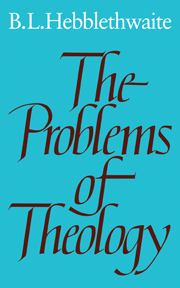6 - Theology and history
Published online by Cambridge University Press: 30 September 2009
Summary
All the world religions are historical in one sense, in that each has a long history and has developed and ramified over the centuries. Some, such as Confucianism, Christianity and Islam, go back to a particular historical founder; while others, such as Hinduism, have unknown roots, long before recorded history. We know quite a lot about some of the founders of the religions. Jesus and Muhammad, for example, are pretty well documented, even though, in the case of Jesus, the facts have been overlaid to some extent by legends. Similarly we know a great deal about the early history of Christianity and Islam. The Buddha, by contrast, is a more shadowy figure, and it is difficult to extract from the Pali texts and other Buddhist scriptures a reliable historical core, from which to reconstruct the life of the Buddha and the early history of Buddhism.* Other founders of religions are even more obscure. It is not at all clear, for example, even in which century the historical Zoroaster lived. Nevertheless, in order to understand any of the world religions, we need to know something about its early stages, enshrined in its scriptures, and about its historical development. As we saw in Chapter 2, an accurate phenomenology of religion has to be historical, if one is to appreciate the particular context and development of a religion's characteristic beliefs and practices.
In another sense, however, by no means all the world religions can be thought of as historical. There is a marked contrast between those religions for which history is of no great significance and those for which history itself is an important and essential factor. In two respects is this the case.
- Type
- Chapter
- Information
- The Problems of Theology , pp. 102 - 123Publisher: Cambridge University PressPrint publication year: 1980
- 1
- Cited by

